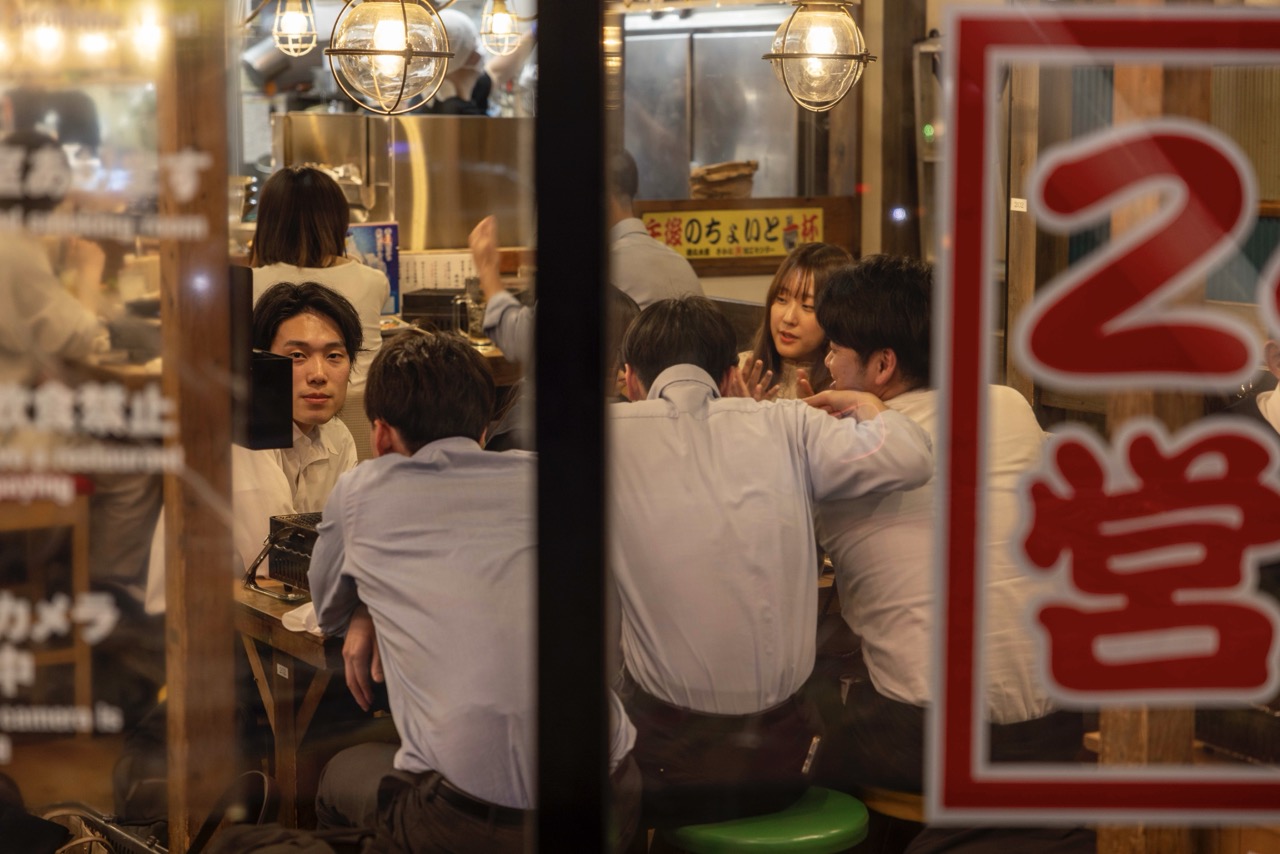Nearly 44% of Japanese people in their 20s have never consumed alcoholic beverages, and about 16% report drinking no more than once a month, according to the "Gen Z Alcohol Consumption" survey published in August by marketing consultancy Mery.
The results reflect a significant shift in social habits in Japan, where beer is traditionally considered a national summer beverage. About 1/6 of survey participants reported drinking alcohol regularly, with 10.3% drinking 4-6 times a week and 7.7% drinking almost daily.
In contrast, over 59% rarely drink. When asked why, 33.7% responded "no specific reason," 24% said they "can't tolerate alcohol," 22.6% find it "enjoyable without drinking," and 21.6% dislike the taste. Around 18% cited health concerns, 10% found alcoholic beverages expensive, and 7% said their friends don't drink either.
 |
A group of Japanese office workers gather at a beer hall near Yokohama Station. _Photo: Reuters_ |
In the survey, about 60% of participants expressed negative views toward the culture of after-work drinking for bonding with colleagues. The Japanese have long had a term for this practice: "nominication," combining the Japanese word "nomu" (to drink) and the English word "communication."
Issei Izawa, a 26-year-old real estate employee in Yokohama, said he drinks less and focuses on sports.
"My company doesn't pressure us, but my friends who work elsewhere face more pressure. I don't think it's good for companies when many employees are tired or hungover several days a week," he said.
Data released by major Japanese breweries on the same day showed that August beer consumption decreased by 9% compared to the same period last year, marking the fifth consecutive month of decline. The beverage industry once believed that beer always sold well during hot summers, but the decline suggests a difficult-to-reverse trend among young consumers.
Experts believe this shift stems from various factors, including the Covid-19 pandemic disrupting social gatherings, the pressure of living expenses, and a lifestyle focused on personal well-being.
"The pandemic broke many people's habit of drinking with colleagues. Students used to view university as a place for partying, but that has stopped. Now they enter the workforce without having formed the habit of after-work drinking," analyzed Sumie Kawakami, a sociology lecturer at Yamanashi Gakuin University.
Kawakami believes the generational gap in the workplace also contributes to young people shunning after-work drinking. This trend is extending to older generations as well, as people seek greater work-life balance.
"Young people don't want to go out drinking with their bosses after work, nor do they want to feel pressured to participate. Many just want to finish work and go home, spending time on their own things," she said.
Thanh Danh (_SCMP, Nippon, Merry_)












